“Civil Society Should Be A Privileged Sector”
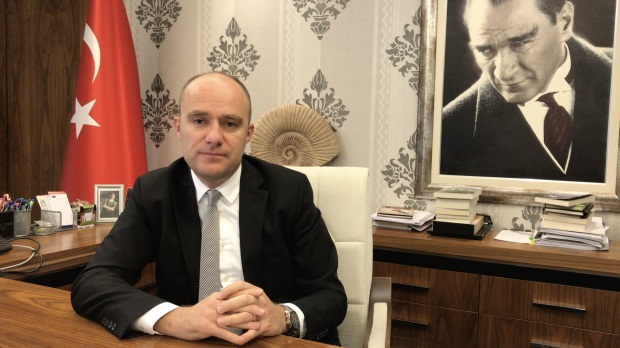
“We talked with Bülent Özcan, Deputy Director General of Financial Cooperation and Project Implementation of the Ministry of Foreign Affairs, Directorate of EU Affairs, the Pre-Accession Financial Assistance (IPA), about the contribution of the civil society to the EU harmonization process and public-civil society relations.
What would you say about the political and social effects of the civil society becoming one of the priority sectors, especially democratization?
First of all, Pre-Accession Financial Assistance (IPA) has various priorities every period. Turkey has been benefiting from these resources since 2002, but civil society was sub priority which was out of basic issues in the previous periods. However, in the financial assistance provided to Turkey since 2014, we, as Turkey, demanded that the issue of civil society should be a priority, empowerment of civil society should definitely be addressed, and this should be one of the same other basic priority areas and this was accepted. This was an important development for us. Thus, the development strategy of the civil society was determined and a budget was allocated. Therefore, we started to use European Union Financial Assistance on behalf of the civil society sector. We have set some priorities under this heading. These were strengthening the capacity of civil society and public-civil society relations, improving the legal legislation on civil society, and contributing to the dialogue of non-governmental organizations in Turkey with non-governmental organizations in EU member countries which means contribution to Turkey’s EU accession process. We set out in line with these priorities and made the project come to life. The civil society sector has made an important contribution to the strengthening of the civil space. There were many different projects in the democratization in Turkey, contribution to the development of democracy, civil society organizations in decision-making processes. The projects on improving the relations between public and civil society was implemented and will continue to be implemented in the coming period. Of course, in a big country like Turkey, we don’t always expect these projects to have large and small impacts. As a result, these supports provided to the civil society sector were very important, especially in the name of strengthening civil society and increasing participation.
Public Civil Society Relations
You said that improving the public–civil society relations is one of your priorities. Do you think that in the current situation, public institutions are sufficiently benefiting from the experience of the civil society? How can this situation be improved?
It is not easy for public and non-governmental organizations to work together and spread it all over the country. However, it is a very important area. We all see that it is a great need for the public to listen to non-governmental organizations, to include them in decision-making processes and to benefit from non-governmental organizations in solving social problems. In this respect, please do consider this process in several different segments. The first one is the relations between central organizations/the ministries and non-governmental organizations, and the second one is the relations with local administrations and non-governmental organizations. Ofcourse, it’s not easy at the ministerial level. This is not possible because within the framework of the expertise of non-governmental organizations both the fields are very wide and the subjects are very in-depth. And there may be resistance in the public sector in relation to this process. We have tried to implement projects that can support them. We implemented some pilot projects with the Ministry of Internal Affairs, the Ministry of Family, Labor and Social Policy and we have also seen that this is a work that can happen in a sense. In this sense, the models have emerged in themselves but it can be easier at the local level. The people know each other and they know more at local level. They can work together to solve local problems. In particular, we support local governments to be partners to these projects by the funds we provide for non-governmental organizations. In this direction, we see that it is easier for non-governmental organizations to work with the public. In fact, this is an encouraging thing for us. I hope it will become widespread in the coming period.
Local Government – Civil Society Relations
What are your observations on the relationship between local governments and civil society? How can this bond be strengthened? What impact does this relationship have on cities and social life?
When we consider it especially at the level of local governments and municipalities, we have said that non-governmental organizations and local governments can work more easily. Especially here, the city councils are very important actors. You know, an important time has passed since the city councils were established in Turkey. From time to time, we have seen very good examples of it. From time to time, we have seen that it doesn’t work. However, the city councils are the best instrument that people in decision-making positions in local governments can use. Because the city councils are a tool that includes non-governmental organizations and where non-governmental organizations can share their ideas related to urban problems with the local governments. Therefore, there is an expectation for the effective and efficient operation of city councils after every election, and now there is such an expectation. I hope that city councils can be used as a good tool in terms of participation of non-governmental organizations in decision-making processes during this period. If city councils are well managed, it will become a tool in which civil society organizations, citizens, civil actors can share problems related to the city with local administrators. In this sense, we think that this is the most important instrument.
How About Sustainability?
To date, you have contributed to the support of more than 4000 projects. What can be done to ensure that these projects are sustainable after their support programs are over?
Especially, the use of EU funds at the local level is through a mechanism which we call grant program. In other words, a project call is made for non-governmental organizations and other local actors. These project calls can be on different themes and topics. When we look at the past implementations, we see that about 100 project call for proposals, the grant program, have been implemented. Among them, we see that more than 500 million resources have been transferred to these projects and close to 5000 projects have been funded. The number of projects created by organizations at the level of associations, foundations and cooperatives is between1000-1500. In other words, most of these 5000 projects have been used by the non-governmental organizations. The sustainability is the most important issue after the projects are finished. Unfortunately, some of these projects lose their function after the funding runs out which is a risk and a problem. But on the other hand, there are institutions that continue their projects. In particular, we see that sustainability is in projects which bring different actors togather, for example, a NGO a public institution. And the sustainability of these projects is stronger if we can see that such a project is integrated into the structure of the public organization, a chamber or local governments when there is a good gain in projects. Or some non-governmental organizations can ensure their own sustainability by developing their projects through subsequent grant programs and creating new project ideas. This is also an option. Or they can sustain the achievements made by the projects not only through EU grants, but also through development agencies, different resources of state institutions, international programs, etc. The important thing is that while the project is designed from the beginning, it should be well thought about how to ensure sustainability. If they really think about it just a little, we see that the projects are sustainable.
Can Civil Society Learn From Each Other?
Is there a ground where civil society and other stakeholders can learn from each other and produce together in Turkey and what can be done in this regard?
Unfortunately, we cannot see much of integrated programs where non-governmental organizations can find each other. But especially the studies on civil society sector that our EU Presidency has carried out under the EU pre-accession financial assistance, are actually aiming this. In other words, it strives to create a platform that can bring NGOs from different fields together and benefit from each other’s experiences. In addition, there are other initiatives which are under the EU financial assistance such as STGM,Sivil Düşün or Etkiniz program. In such programs, we also see that there are studies that can bring together NGOs in different areas or NGOs working in similar areas. I think that if civil society organizations want to work with different stakeholders, especially if they closely follow the work that I just mentioned under this civil society sector, they can easily find organizations that can conduct joint work from both local governments – the public front and non-governmental organizations working in different areas. And I know that it is not easy to bring all NGO’s under one umbrella.
What More Sivil Sayfalar Could Do About It?
Can we get your evaluations on Sivil Sayfalar which also receive support from the Head of EU and work on civil society reporting? What can we do about it?
First, I would like to congratulate everyone who contributed to Sivil Sayfalar. Because it is a platform where NGO’s can hear from each other and follow their developments in this field. A very valuable platform. In that sense, we are very happy to be a part of this work. There is much to be done in civil society within the scope of Sivil Sayfalar. The Projects under pre-accession financial assistance and under the civil society sector, have many stories. There are human stories, development stories and contributions. These should be a little more included in the Sivil Sayfalar. Because these success stories can create a spark for the other non-governmental organizations, add a vision to them and support them in order to help their next work. At the same time, it provides the opportunity to create synergies with NGOs working in similar fields and even with public organizations. Therefore, the project stories and achievements are useful to take part more. This is the first one. The second, the needs of civil society are not only the projects and funding but they also need legislation and legal regulations related to civil society because sometimes there can be regulations on very technical issues which civil society cannot be aware of this. There might be opportunities arising from legal regulations but again, it is not very easy to read it. It is very important to include such expert opinions, on the other hand, it will be beneficial to discuss the ideas and issues that can improve the cooperation between non-governmental organizations. But in its current state, we think that Sivil Sayfalar has an important mission in order non-governmental organisation to meet certain needs such as the news and the information.
What is on the agenda of the EU Presidency for the new term?
The pre-accession financial assistance includes important opportunities for the civil society sector. In 2014-20, we designed and implemented different programs for of non-governmental organizations to use it with a budget of 200 million euros. Currently, the EU Presidency provides a fund of 20 million Euros to 120 non-governmental organizations. The Civil Society Development Center of the EU Delegation to Turkey gives support through programs such as Sivil Düşün or Etkiniz. Some public institutions have projects in which we cooperate with NGOs. Therefore, many projects have been funded under this sector but similar opportunities will be in question in the coming period. We, as the EU Presidency, will now begin to negotiate the 2021-27 period with the EU Union side. As a result of these negotiations, I am sure that under the civil society sector, there will be many sources of funding that civil society organizations can benefit from. The first thing that non-governmental organizations need to do is to follow the grant programs under the non-governmental sector because this is the the first opportunity to reach the funding source. And second, many studies are carried out under this heading in order not only to fund but also to participate in different studies, conferences, networks and trainings. Therefore, it is important that they follow the announcements of the civil society sector in order to be a part of these studies. So I think it would be useful for the EU presidency or other programs such as STGM, Sivil Düşün ya da Etkiniz programs that provide support to civil society in the sector, or for them to follow the calls and announcements of the EU Delegation to Turkey.




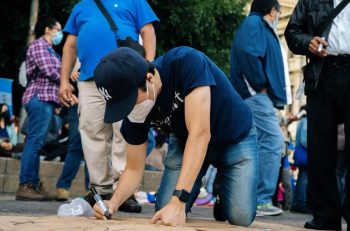
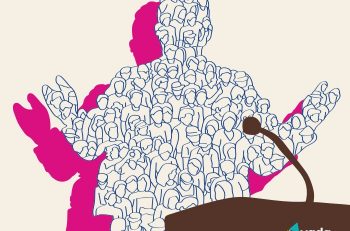
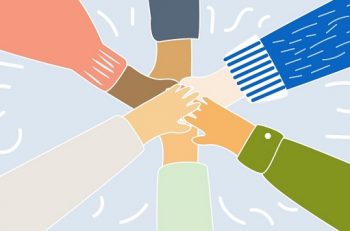
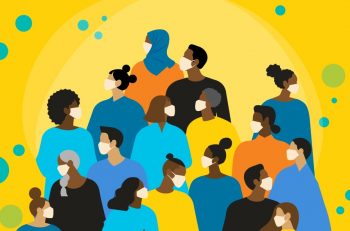
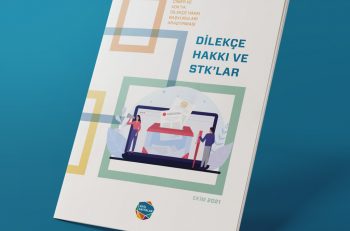
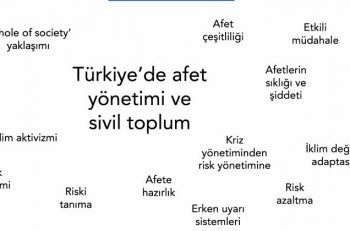


Bizi Takip Edin